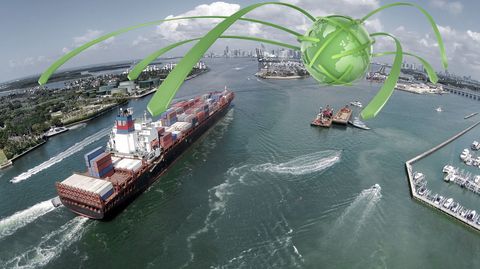Import compliance: Everything firms need to know
A single centralized software solution for customs import compliance can make your clearance and declaration processes as easy as possible.
Importing goods into a country can often be a complex business. However, it's essential that whenever a shipment enters a new territory, the owner has the correct documentation and makes a full declaration in order to maintain import compliance with local rules.
Such efforts are essential in ensuring businesses are paying the correct amount of tax on their imports, as well as being fully compliant with reporting requirements, quotas and any licensing rules.
However, this is not an easy process, especially for firms with global supply chains that may be shipping to a wide range of countries and jurisdictions, which will each have their own procedures that must be followed. This can often result in highly complex paperwork that businesses struggle to keep control over.
Why import compliance matters
Import compliance refers to all of an organization's systems and processes for managing its customs clearance and declaration activities. Getting this right is an essential part of operating any international business.
For starters, it protects your organization against potentially costly violations such as failing to pay the incorrect amount of import duties, or breaching rules related to quotas and licenses.
Errors in tariff classifications can not only result in requirements to pay back any overdue expenses, but firms may also face significant financial penalties on top of this. What's more, they could even run the risk of having their goods seized or licenses suspended.
Ensuring documentation is correct is also essential in the smooth running of a global business. Having complete, accurate paperwork on hand at the point of entry - whether in physical form or as digital records - is paramount in making sure certain goods are released from the customs process as quickly as possible.
Any unnecessary time spent sitting at ports of entry waiting for the right paperwork can seriously impact the efficient running of a business, particularly for manufacturers and other firms that rely on just-in-time supply chains.
The key steps for import clearance being essential for import compliance
To ensure import clearance processes run as smoothly as possible, there are a few key steps that all businesses must follow. Broadly speaking, these fall into three main categories. These are:
Identification and classification
The first step must be to ensure you have a complete and accurate record of what is being imported and that every item is assigned the correct classification. This will require importers to be aware of all the relevant codes for each every item they ship and keep up to date on any changes.
While almost all international trade uses the Harmonized System (HS) for classification developed by the World Customs Organization, these codes are constantly being updated to reflect changes in technology and the emergence of new products. What's more, some countries may update their procedures and legislation at different times, which can lead to temporary inconsistencies, further complicating the process.
Calculating tariffs
It is the responsibility of the importer to ensure they are paying the correct amount of customs duties and other tariffs when bringing items into a country. However, this is often not a simple process. As well as the quantity and value of the items, you need to know what, if any, parts of a shipment are subject to additional restrictions. This may include quotas and whether or not items are covered by trade agreements or free trade zones.
One particular area to be mindful of is ensuring the correct country of origin is recorded for all goods. This is often not the same as the territory where the shipment originated and, as many nations impose different restrictions and duties on goods based on where they originated from, getting this right is essential to making an accurate customs declaration.
Securing licenses
Some goods will require you to possess an additional license in order to import them into a country. Which items are subject to these extra requirements may differ between jurisdictions and need firms to be registered with certain regulators. For example, many countries will demand licenses for animal, plant and certain food products, as well as medications. When importing drugs, for example, businesses shipping to the US will need to be registered with the Food and Drug Administration.
Making an import declaration
In order to ensure import compliance and make the import declaration process as smooth as possible, having the right software solutions is highly valuable. With a single unified system for making import customs filings to each relevant jurisdiction, much of the complexity is taken out of business' hands, freeing up employees' time and reducing the risk of errors that can lead to delays or additional costs.
A centralized import declaration system enables firms to automate the process across multiple countries, ensuring each jurisdiction's relevant authorities and customs processing systems - such as Germany's ATLAS, France's DELTA, the US' ACE and China's e-Port - receive the correct information in a timely manner.
Benefits of using this type of software to ensure import compliance include:
- Automated declarations
- Easy checks against quotas
- Direct data exchange with electronics customs filing systems
- Full logging of activities for easy auditing
- Simple preparation of country-specific electronic filing formats
- Automatic calculation of customs value, taxes and duties
Advantages of customs clearance software solutions
Having all the functionality for every country in a single location makes the process of filing customs declarations much easier and faster. One platform with an intuitive, uniform interface - like MIC's customs and trade compliance software solutions - for all jurisdictions provides for better accuracy and reassures importers and exporters they are fully compliant at all times.

